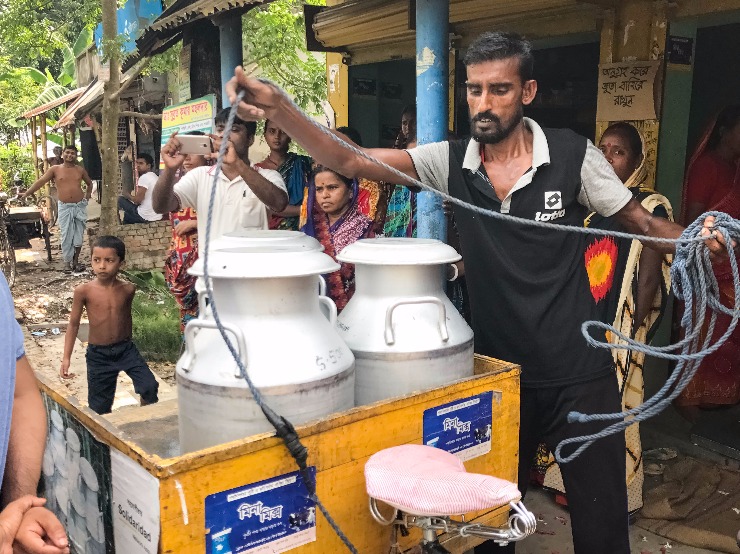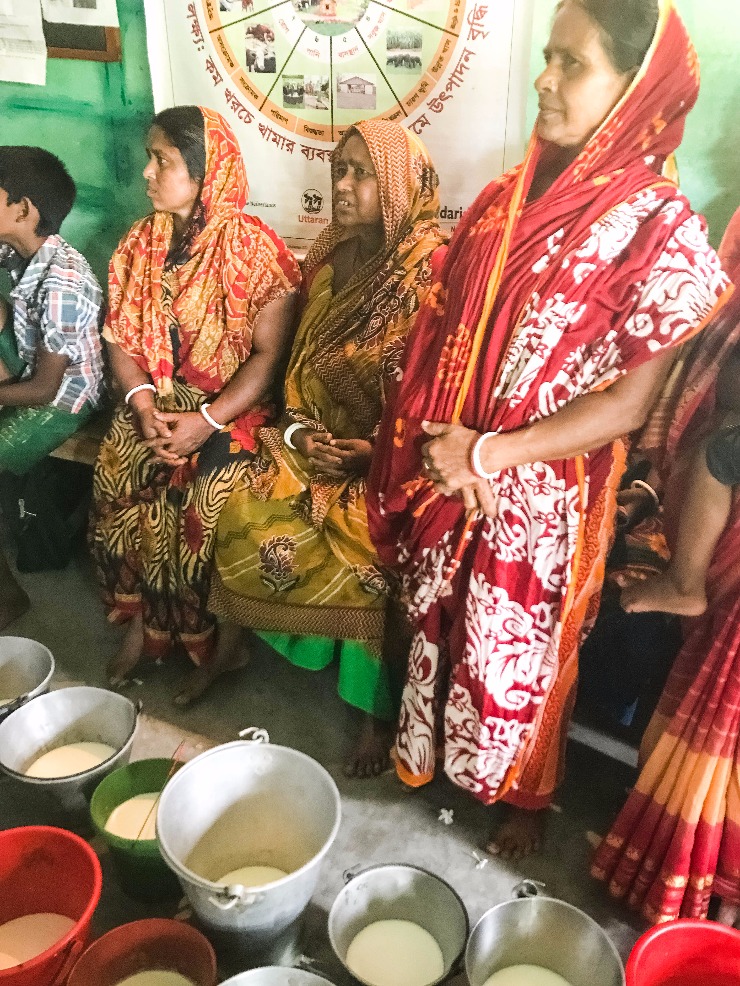
DONATION IN LIEU OF GIFTS
“Last year our companies celebrated a total of 100 years of business altogether, and my father turned 65”, said Mariska Lekkerkerker, current director of the Lekkerkerker Group. “We are a real family business and my father Kees thought it was a great time to pass the torch to me and my brother Niels. We did this with a festive event for our business relations. In lieu of gifts, we asked everyone to make a donation to Solidaridad.”
USING DAIRY EXPERTISE TO BUILD A BETTER WORLD
The Lekkerkerker Group chose Solidaridad because it strives to be sustainable in its own operations, working in a way that does not endanger the world, people or animals. “We are working with our own group of Dutch livestock farmers on animal-friendly business practices and CO2 and phosphate reduction. We think this should be encouraged in the rest of the world as well. The Netherlands is a leader in high-quality dairy production, and we can use that expertise to strengthen the regional economy in developing countries. We hope that we can contribute to this through Solidaridad," Lekkerkerker said.
LOW YIELD, POOR QUALITY
Solidaridad will use the money raised by the Lekkerkerker Group to set up a professional dairy farm in Bangladesh, where several farmers’ cows will be pooled together. “Many small farmers in Bangladesh have three to four cows,” explained Catharinus Wierda, international programme coordinator for dairy at Solidaridad. “The cows receive little care, are poorly fed and spend the entire day in the scorching sun, causing their health to rapidly deteriorate. They are also milked in an unhygienic manner and the milk is not refrigerated. This causes the cows to produce only a small amount of milk that is of low quality. The milk can never generate a decent income this way.”

GOLDEN OPPORTUNITY
According to Wierda, scaling up is a golden opportunity for the Bangladeshi farmers. “By placing 10 to 25 cows from different farmers together on a professional farm, where they will be adequately looked after and professionally milked, and where refrigeration equipment will be available to properly store the milk, the milk yield can increase from 400 to 500 litres per cow per year to 2,000 to 3,000 litres,” Wierda said. “This will also increase the farmers’ market certainty in terms of sales, making them a reliable partner for local customers.”
CO-FINANCING AND TRAINING
Solidaridad will co-finance the pilot facility and develop it together with the farmers. The participating farmers will cluster their land to grow grass as low-cost feed for the cows. Wierda explained, “We’ll be assisting with the design and layout of the barn and will train the farmers in the basic principles of running a dairy farm, such as feed cultivation, hygienic milking practices and business management.”
The cows will receive better feed and clean drinking water, and will be well housed in a stone building with a clean floor. Milking machines and a refrigeration tank will be installed. The manure will also be processed in a more efficient way that will prevent it from being released into the environment. The manure will be collected and reused to fertilise the pasture.
CATALYST FOR MORE BUSINESSES
“We are extremely happy with Lekkerkerker’s contribution,” Wierda said. “We enjoy working with other companies to create change that makes an impact. We cannot do it alone. With this project, we are setting an example for other farmers. They can see that this type of company, which is run by the farmers themselves, delivers high returns. They can learn from this and will be more likely to set up their own business as well. Ultimately, this should be a catalyst for the establishment of many more such businesses.”
Learn more about Solidaridad programmes for sustainable dairy
